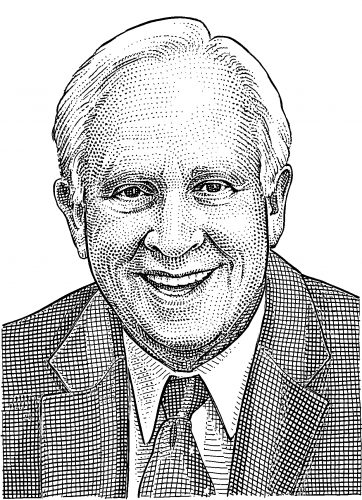As Industries Shift to AI: Stay Relevant
Plus more career advice: I’m a freelancer — does it matter what I call myself?

As Industries Shift to AI: Stay Relevant
Plus more career advice: I’m a freelancer — does it matter what I call myself?
Disagreement exists about whether the old Chinese proverb “May you live in interesting times” is a blessing or a curse. Labor experts say we are going to find out in the future of work. The problem is that these experts do not agree on what the future looks like.
There is agreement that technology, especially robotics and artificial intelligence, will have a huge impact in the future. There is also agreement that workplace demographics will play a large part. The third area of agreement is that employers will change the way they hire, retain and release employees.
Several employment dynamics are changing. Mergers, divestments and acquisitions affect workplace numbers. The employment practices that companies now choose involve location — having employees on campus or off campus — and balancing on-payroll and contract employees. These choices impact employee benefits as well as building and space needs.
So how will you navigate these changes? You can make two career decisions that can keep you from failure.
The first is your choice on how to stay relevant. Should you gain more education and specialized training? Taking courses to update and/or keep current with essential skills, including licenses and certifications, will help you keep up with changes in the workplace.
The second choice is deciding on your employers. What if you bet on an employer that cannot stay competitive? How do you avoid becoming pigeonholed into a position that no longer works? What about a career change — which is not the same as changing jobs — into a field with high demand or that is more interesting to you?
There are antidotes to keep you from failing in your choices and to help during rough patches. First, the critical thinking skills you’ve acquired will make you continually ask big-picture questions such as: What is the future of my industry? My career field?
Next, does your professional network reflect your current needs versus when you started your career? And, finally, keep your LinkedIn profile updated and written in a way that will attract a range of employers. Stay with these simple tasks and you are set up for success.
Ask Mr. T
Q. I decided to freelance four years ago so I could be my own boss. I have found that people I talk to have one of two opinions about the self-employed: Either they couldn’t make it with their own business or they couldn’t get a job with a company in the first place. How do I handle this, and which title should I use?

John Thompson, aka Mr. T
A. Potential partners will judge you by what you call yourself. Names for people who are proprietors of their own businesses are: self-employed, business/company owner, freelancer, solopreneur or entrepreneur. All have connotations. Self-employed is getting paid from your own business. Business owner is a synonym for this, but “owner” is the stronger term and can imply that others work for you. Freelancer, which sounds undisciplined, is someone who markets skills to a variety of people. Solopreneur sounds like a single person taking business risks, while entrepreneur sounds much like “owner,” with others working for you.
Calling yourself a company owner elevates your image as a leader and manager. You can explain your accomplishments on your résumé. You should also have a greater range of experiences from running your business — this gives you a knowledge of responsibility that others may not have.
Send your career questions to tcumagazine@tcu.edu
John Thompson is the former executive director of TCU’s Center for Career and Professional Development. For more information about careers, visit careers.tcu.edu

Your comments are welcome
Comments
Related reading:
Alumni
A Comedian’s Advice
Matt Hovde, director at The Second City, finds success by embracing fear, empathy and the word “yes.”
Alumni
Fayneese Miller is a Leader
The alumna and president of Hamline University emphasizes action over good intentions and owning up to whatever results may come.
Features
Did you Fail? 7 Frogs Find Meaning in Life’s Wrong Turns
On the path to success, falling doesn’t mean you can’t fly.